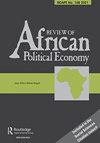葛兰西的“南方问题”和埃及的威权紧缩:次等性和激进机构的破坏
IF 1.4
3区 社会学
Q1 AREA STUDIES
引用次数: 0
摘要
对2011年埃及革命后威权主义收缩的解释,要么援引政权对“无领导”动员和公民活动家的镇压优势,要么援引反对派团体的准备不足和激进主义。两种解释都不能令人满意。首先,尽管是“改革派”,但反对派团体的要求在起义之前、期间和之后都被视为对政权的激进挑战。其次,因为对政权强制能力的呼吁与反对派在起义前崛起的解释相矛盾:如果活动人士在2011年之前侵蚀了埃及的独裁政权,那么是什么让他们无法在之后继续这样做?相反,如果活动家的代理在2011年之前是有效的,尽管强制能力存在严重失衡,那么这些失衡本身并不能解释活动家在革命后的衰落。简而言之,如果在埃及的“十八天”之前不能否认激进分子的作用,那么它必须在其后果中得到解释。为了做到这一点,作者借鉴了葛兰西的原始文本和意大利语学术,发展了他被忽视的disgregazione概念。本文章由计算机程序翻译,如有差异,请以英文原文为准。
Gramsci’s ‘Southern Question’ and Egypt’s authoritarian retrenchment: subalternity and the disruption of activist agency
ABSTRACT Explanations of the authoritarian retrenchment after Egypt’s 2011 Revolution invoke either the regime’s repressive advantage over ‘leaderless’ mobilisation and civic activists, or insufficient preparations and radicalism on the part of opposition groups. Both explanations are unsatisfactory. First, because despite being ‘reformist’, opposition groups’ demands were perceived as radical challenges to regimes before, during and after the uprisings. Second, because appeals to regimes’ coercive capacity contradict explanations of opponents’ rise to prominence before the uprisings: if activists eroded Egypt’s authoritarian regime before 2011, what made them unable to continue doing so afterwards? Conversely, if activists’ agency was effective before 2011 despite gross imbalances in coercive capacity, then those imbalances alone cannot explain activists’ post-revolutionary decline. In short, if activists’ agency cannot be denied before Egypt’s ‘eighteen days’, it must be accounted for in their aftermath. To do this, the authors draw on Gramsci’s original texts and Italian-language scholarship to develop his neglected notion of disgregazione.
求助全文
通过发布文献求助,成功后即可免费获取论文全文。
去求助
来源期刊

Review of African Political Economy
Multiple-
CiteScore
3.00
自引率
7.70%
发文量
29
期刊介绍:
The Review of African Political Economy (ROAPE) is a refereed journal committed to encouraging high quality research and fostering excellence in the understanding of African political economy. Published quarterly by Routledge, Taylor & Francis Group for the ROAPE international collective it has since 1974 provided radical analysis of trends and issues in Africa. It has paid particular attention to the political economy of inequality, exploitation and oppression, whether driven by global forces or local ones (such as class, race, community and gender), and to materialist interpretations of change in Africa. It has sustained a critical analysis of the nature of power and the state in Africa.
 求助内容:
求助内容: 应助结果提醒方式:
应助结果提醒方式:


